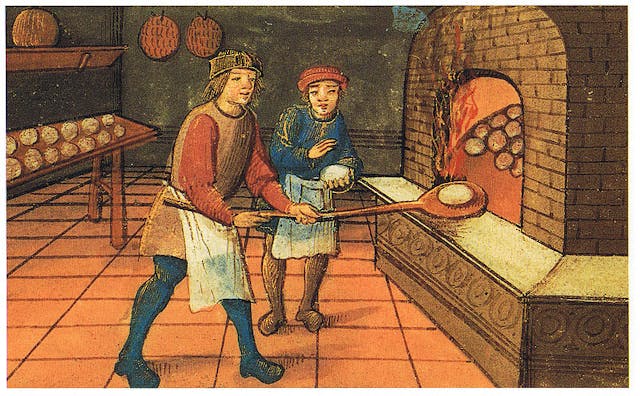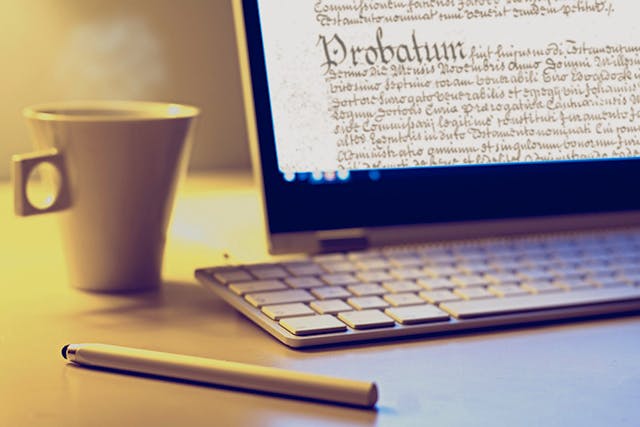
Medieval baker with his apprentice
Apprenticeships
Evidence of apprenticeships is more likely in the 18th century than at any other time from town freemen records, London guilds, parish pauper apprenticeships and the tax levied on apprentice indentures. Over the years we have collected many copies of books and reference material relating to apprenticeships in our library and also holds a rare collection of original apprentice indentures which can be found in the online digital collections.
You can search our library catalogue and digital collections from the Our Collections page.
Semi official records of apprentices were kept in England and Wales between 1710 and 1811, when stamp duty was payable on some indentures of apprenticeship. Registers of the duty paid were kept by the Commissioners of Stamps.
These records were discovered at the Inland Revenue by our members who lobbied for them to be transferred to the then Public Record Office and this became one of our first major record indexing projects in the 1920s.
From 1710 to 1811 masters paid stamp duty for taking on apprentices. Details of the stamp duty paid were recorded in apprenticeship books. You can search the indexed apprenticeship books from 1710 to 1811 on SoG Data online. Images of the records are on film at the SoG or on Ancestry.co.uk (charges apply) by name of master. Alternatively, you can browse the apprenticeship books (IR 1) on digital microfilm from the National Archives.
The apprenticeship books are divided into Town Registers (London) and Country Registers (elsewhere), depending on where the stamp duty was paid. There are original indexes of masters to some of these registers, available to view online, in IR 1/74-79. The catalogue description for each index indicates the series of volumes to which they refer (for example, IR 1/74 refers to volumes 22-25). These volume numbers equate to National Archives piece numbers (so, using the previous example, IR 1/74 refers to IR 1/22-25).
If the apprenticeship was in Middlesex or one of the home counties the duty may have been paid in London and the details entered in one of the London registers.
The payment could be made at the start of the apprenticeship or any time up to one year after the expiry of the indenture.
Our index to the apprentice tax includes the name of the apprentice, the master, the trade and place of residence of the master and up to 1760s we have noted the premium the master charged that was subject to tax. In the early years up to about 1760 the father of the apprentice may be named but this is not recorded out in the later records.

Our most popular online collections include:
Join us
As a member, you can make the most of our resources, access our experts, and find a welcoming community of people interested in family history and genealogy.
We all have roots. Let’s find them together.
